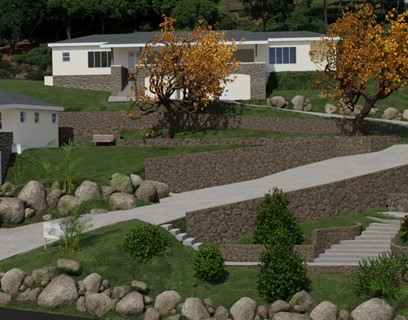
Can wealth be created by investing in making the world a better place? The sole reason people invest is to create wealth. Everyday money is put into the real estate, stock, bond and commodities market with the hope of it growing . Investing allows us to live in the manner we please. It also ensures that our loved ones are protected in the event of a crisis. But what if it was possible to achieve good financial returns while creating positive social outcomes?
Social Impact Investing is a form of socially responsible investing. The idea is simple: There are countless social issues plaguing the world. Some of these issues include, lack of waste removal services and lack of access to education. With social impact investing, capital is deployed in companies, organizations and funds with the intent to create beneficial social and environmental impact.
Socially focused entrepreneurs in the Caribbean have been faced with a number of problems. These problems include; the lack of flexibility that revolves around the use of grant money, the lack of an easy access to strong capital markets, and a lack of effective funding models. This results in roadblocks for innovation and growth. Added to that, many entrepreneurs are dissuaded from their venture due to donors refusing to cover any bit of overhead which makes scaling up virtually impossible as most social ventures are perennially underfunded.
Impact investors tend to focus on investing in these eight sectors:
(1) alternative energy,
(2) agriculture and agribusiness,
(3) transportation including ports, island roads, and inter-island transport,
(4) tourism,
(5) cultural industries,
(6) microfinance,
(7) SME development,
(8) ‘base of pyramid’ basic needs.
All of these eight sectors are large contributors to the development of the Caribbean. This suggests that our region stands to make enormous gains, both economic and social, from impact investing. Social investors have flocked to deploy capital in the same sectors in Asia, Africa, and Latin America. We can certainly offer these same investment opportunities to them.
Although the size of impact investing in the region is relatively low compared to other regions, it would be misleading to say that social impact investing is not happening in the Caribbean. A number of private investors have begun to actively pursue opportunities within the region. These investors include Leopard Capital and Portland Private Equity which was founded by Jamaican-billionaire, Michael Lee-Chin. Haiti has received the majority of global media attention, and thus it has enjoyed most of the social investments that have been directed towards the region.
However, a lot more work still needs to be done. Caribbean governments must actively seek to work with investors to increase the level of investment in the Caribbean. Private capital is needed in order to grow a sustainable Caribbean economy. Our region cannot compete on a global stage if we focus on the government to be the largest investor. Fortunately, we live in a world awash in capital. There is no shortage of money. The United States alone has $700B in foundation assets.
The Inter-American Development Bank (IADB) is the oldest and largest multilateral lender in Latin America and the Caribbean. The IDB group is the primary partner for private sector ventures and projects that seek to combine financial and social returns to reduce poverty and contribute to sustainable development. They offer a variety of grants and programs that can help a vying entrepreneur get started. They actively will work to open lines of credit so that a person may get a start on their dream of making a social impact via owning or investing in a business. The IDB group alone has aided in awarding over US$27299.25 million in the social investment sector alone. In Haiti, IDB has provided US$14 million for the modernization of Agricultural Health Public Services, and in Barbados US$35 million has been awarded for enhanced access to credit for productivity project.
Although it would be ideal to have locals invest in the local community, we cannot limit ourselves just to local and regional investors. It is absolutely vital to search for international investors as well. Some governments around the world have begun exploring the potential for social impact bonds. These will be financial instruments that will pay an investor if the cost or incidence of something is reduced, literacy or foster care for example, with comparable or better results than a government program. Social Impact mutual funds could also be created to pool capital from Caribbean residents and members of the Caribbean Diaspora to deploy in viable sectors. This will alleviate the large amount of taxpayers dollars that are being spent in sectors that can be run by private persons.
In recent years, social impact investments funds have been generating decent returns to investors. The Haas Socially Responsible Investment Fund is one success story. From 2011-2014, the fund beat the market by almost 5%. It has achieved over 50% return on investment since its inception. It is my emphatic belief that wealth can be created while trying to make the world a better place.
The key here is to encourage more investors to pool their money with others to invest in socially focused funds and investments. This will allow more capital to be put in a larger number of deals, and therefore risk can be spread. If the amount of capital placed into impact investment funds increases, returns would typically be higher as well. This is because investments can be higher and better diversified.
A common trait among persons in the Caribbean is that they are stuck with a handout mentality. Yes, the role of any government is to provide public goods to its citizens. However, a government cannot be the largest investor in the majority of a country’s sectors. This will only drain resources and create market failure.
One way to change this mentality is to establish educational programs that share a series of success stories or narratives. Case studies on countries that are successfully using capital from impact investing can be used to show policymakers, entrepreneurs, investors and residents of the Caribbean what can be done.
Education is a huge part of the impact investment sector and can be easily broken into. By education I do not mean to imply school houses, although that is needed in some areas, but in some cases all there needs to be is a non-governmental organization, or a non-for profit that educates locals on good financial habits or finds them good lines of credit so they can open their own businesses. Education is a very broad and easily applicable title for a section and it can readily be remade under the umbrella of another sector. For example; if you educated people on issues concerning agriculture or agribusiness then that could potentially fall under two sectors and may have more potential grants or loans available.
Overall, it is vital that Caribbean countries begin to look more at the private sector to solve their social and economic issues. Countries in Latin America, Asia and Africa have been benefiting from impact investing and it is about time we look to benefit from it as well. There is a limit to how much capital the government can deploy in the economy without increasing taxes, however the amount of capital that private investors have to offer is almost limitless.
This article was originally published in the September 2014 edition of HIVE Magazine


